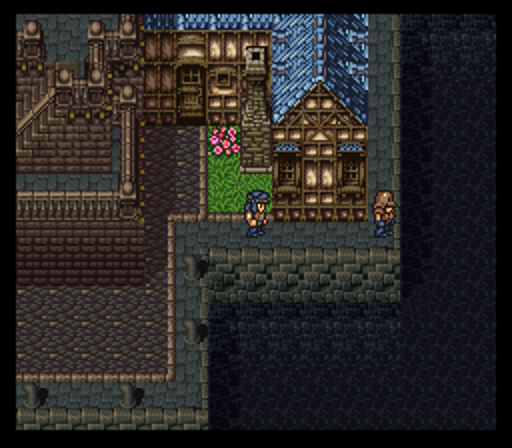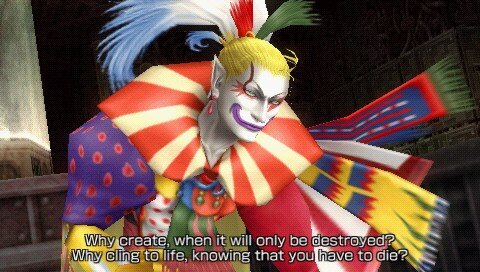Why you should play Final Fantasy VI
If you’re reading this post in a world where COVID-19 is just a memory, let me give you some context.
Half the planet is in confinement. There’s a nasty virus going around that might kill you if it decides to settle in your lungs. It’s a very stressful and uncertain time, but it’s also an incredibly boring one. Everyone’s home and watching The Office on Netflix for the forty-seventh time, not knowing what else to do with their time. Being the man of action and service that I am, I want to suggest you an alternative that doesn’t make you a part of the global internet bandwith problem : retro gaming. More precisely, one of the best video games of all-time: Final Fantasy VI.
A World at War
Video games are traditionally linear experiences. Even open world games today progress in a very confined direction. Take the greatest open world game of all-time Grand Theft Auto; San Andreas for example. Your character moves from Los Santos (L.A) to San Fierro (San Francisco) to Las Venturas (Vegas) without ever having to go back and forth between them. If you’re in Las Venturas, you’re free to drive back to Los Santos but it serves no in-game purpose until you’re done with the Las Venturas missions. It’s technically not linear… but it kind of is.
Final Fantasy VI is a proto-open world game. It funnels the player down a specific course of action while it gradually reveals its map. It tells the story of a world on the brink of war, terrified by an evil empire hellbent on reviving the power of magic. It is still today, the best game I’ve ever seen at making you understanding how war feels and it does that through a very ingenious idea: making you revisit locations.
Let me if you an example. Near the beginning of the game, you visit the village of South Figaro on your way to the Returners’ hideout. Everyone’s worried about the political climate, but it’s rather peaceful. Soon after, Locke has to return and the village is occupied by the empire. Soldiers and machines are blocking different pathways. They have settled inside different buildings and Locke is forced to steal clothes in order to walk around unnoticed. t’s the same map, but not the same emotional experience. You’ve experienced a trauma in a community.
I believe you go through South Figaro three or four times during the game and it is never the same. Final Fantasy VI makes you witness the cruel undoing of a precariously balanced society. It makes you experience things you’re eventually going to lose, therefore binding you emotionally to the events of the game. It make you want to see this thing through.
More than murder
A great majority of video games revolve around murder. There’s a map. You need to go from point A to point B and usually, it is accomplished by killing everyone in your path. By either stomping on them like Super Mario or gunning them down… like everyone else. Final Fantasy VI is not above that. It’s a game where you need to defeat enemies. But what makes it special is that it’s not always how you advance the game. Sometimes, you’re required to do weird shit.
For example, there’s a whole segment of the game based around an opera representation. Celes (one of my favorite characters), a disgraced empire general turned Returner, is required to sing at the opera house in order to derail a kidnapping plot. The brilliance of this segment is that you HAVE to fucking do it. You have to learn the song and perform the lyrics in order to get to the following part of the game. Not only its a fun respite from the grind, but it takes the character our of the wartime context for a moment. It’s almost like a team-building exercise.
Opera house is the weirdest segment of Final Fantasy VI, but it is filled with fun little oddities that diverge from what you would expect our of the game. There’s an auction house where you can bid on items available nowhere else, a fucking phantom train, an undergoing cave accessible only by getting defeated by a particular enemy, underwater traveling, etc. There’s so much more to this game than going from point A to point B. Final Fantasy VI is rich with weird, fun quirks to explore.
A killer villain
Aaaaah, you’ve seen me coming with this one, didn’t you? A story is nothing without a great villain and Kefka is one of the best there ever was. Obviously inspired by the Joker and inexplicably a high-ranked official in the empire army despite being…. well, a literal clown, what makes Kefka so scary and unpredictable is his thirst for power. The man doesn’t want to just lead the army. He doesn’t want to just lead the empire. He doesn’t want to just be the most powerful being in the universe. He wants more and more and more.
Kefka’s desires are pathological, but he’s empowered by a bureaucratic structure he inexplicably subscribed to. His relationship to his superiors and coworkers is largely unexplained, but we know he’s fear and reviled by everyone supposed to be on his side. That’s fucking scary. Kefka will eventually reshape the world to his ruthless vision, but it’s still not going to be enough for him. He’s like a Wall Street broker addicted to human misery instead of money. He is a constant threat to the future and the longer he reigns, the worse it gets.
*
That’s about it, folks. Final Fantasy VI is available on SNES Classic, emulators and iPhone (where I’m playing it right now). I did not think it would still be so immersive when I started playing it again last weekend. It’s about 60 to 100 hours, depending on how long you want to grind your characters upwards, so it’s a lot of confinement time not spent eating bandwith and watching shit you don’t really want to watch on Netflix. If you liked this article, please let me know on social media or in the comments. There is more where it comes from.









